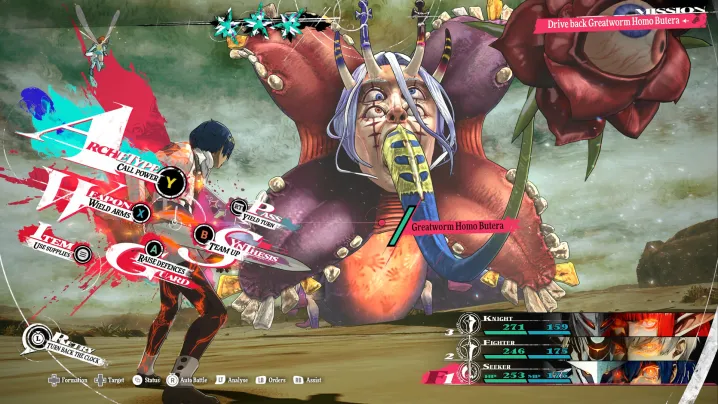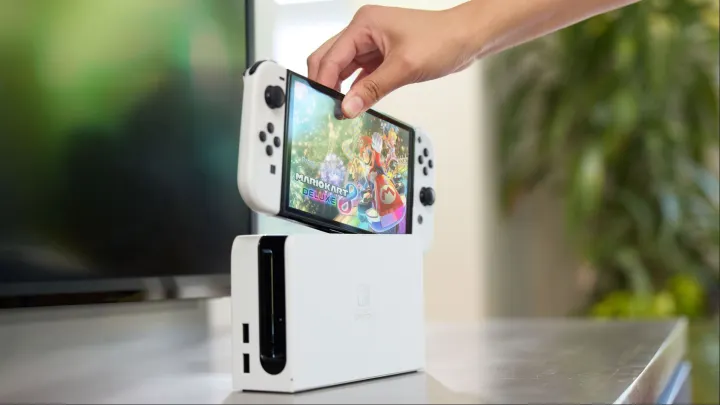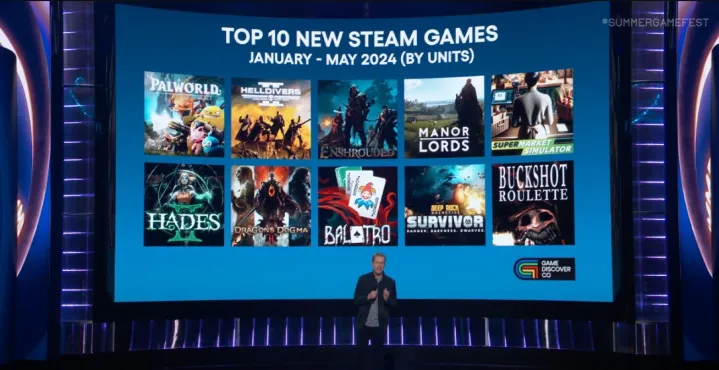It’s my favorite time of the year at Digital Trends. Every time a year ends, I like play prognosticator and predict what’s going to happen in video games the following year. I’ve run this series for the past few years and I often find that my guesses are spot-on come December. That’s always a rewarding moment as I reflect on a long 12 months. On the flip side, sometimes I’m so embarrassingly wrong that I get a good laugh to end the year.
This year, it’s the latter.
Back in January, I made four predictions for 2024 in gaming. They were bold guesses about where Sony, Microsoft, and Nintendo would be by the end of the year — and many of them were laughably wrong. To keep myself honest, I’ve analyzed those predictions here and broken down where exactly I was off (and what I was technically correct about, too). If anything, I hope this teaches readers a valuable lesson: The video game industry is very volatile. While it may seem predictable at times, left-field announcements or surprise hits can change a year on a dime. That’s exactly what went down in 2024.
The big game cycle slows way down

The prediction: While 2023 was an enormous year for major franchises, 2024 would see a significant slowdown for big-budget games. There was good reason to think that at the time. We had just gotten a barrage of major releases that had been hyped for years, from The Legend of Zelda: Tears of the Kingdom to Starfield. With Grand Theft Auto 6 and Monster Hunter Wilds confirmed for 2025 at that point, there weren’t a lot of big games left on the docket for 2024 aside from Final Fantasy VII Rebirth. That seemed to indicate what was likely to be a more down to earth year for AAA games.
What really happened: While there will always be debates about how great a year was for games, I don’t think anyone could disagree about the cadence of tentpole games in 2024 compared to 2023. It was a bit of a less eventful year overall just in terms of hyped-up releases. While we still got a few of those thanks to Indiana Jones and the Great Circle and Call of Duty: Black Ops 6, major studios like Nintendo used 2024 as an opportunity to experiment with B-games instead.
Part of what made 2024 feel so light for AAA was that the year was filled with big flops. Suicide Squad: Kill the Justice League started the year with a bomb, Star Wars Outlaws failed to live up to expectations, and Concord‘s launch went so poorly that Sony shuttered the entire game within weeks. These were all games that were supposed to define the year for those who mostly stick to the most heavily marketed games out there. The fact that they landed with a thud made 2024 feel soft at a surface level.
That’s not to say that it was a bad year for games, though; in fact, it was the best in recent memory. It was a fantastic year for both RPGs and independent games, which filled in the void left by a lack of spectacular Western games. Sony also pulled out plenty of surprises, including what would become this year’s Game of the Year, Astro Bot. Games like Palworld and Black Myth: Wukong also rose as international hits. It was a year that proved that we don’t need Mario or Zelda to make a year great (though, surprisingly enough, we did get those, too).
Right or wrong? Right.
Nintendo’s next console takes center stage

The prediction: Heading into 2024, we treated the Nintendo Switch 2’s launch as a foregone conclusion. Our prediction wasn’t even that it would launch so much that it would be an instant sensation. We even predicted that we might be talking about games like Mario Kart 9 come Game of the Year season! All of that was rounded out by an acknowledgment that the Switch 2 could be a surprise flop if it failed to distinguish itself from its predecessor enough. Either way, we expected it to be 2024’s single-most defining news story.
What really happened: OK, listen.
Who among us did not think that the Nintendo Switch 2 would launch in 2024? The release window had been rumored for what felt like a full year and it was bolstered by rumors that Nintendo had begun showing the console to developers during Gamescom 2023. That’s not to mention that Nintendo had virtually no games announced for the back half of 2024, fueling the prevailing thought that it was saving something big for the Switch 2’s launch.
None of that was the case. While Nintendo did acknowledge that the Switch 2 exists, it quickly became clear that the console wasn’t coming until 2025. Nintendo was prepared for that wait, unleashing a barrage of surprise games that gave the current Switch an unexpectedly busy holiday season. With rumors heating up, the console’s launch feels imminent, but our 2024 prediction was jumping the gun just a bit.
I’m going to give myself some cheap credit here. My exact words were that the Switch 2 would “take center stage” in 2024. One could argue that did happen. Switch 2 rumors were top of mind throughout the year, from a fake release date reveal in January to a recent Reddit leak that teased its hall effect joysticks. The console certainly had a spotlight this year in some way, but I’ll take the loss on this one.
Right or wrong? Wrong.
PlayStation sinks, Xbox swims

The prediction: We expected PlayStation and Xbox to end 2024 in very different positions based on what we knew going into the year. At the time, we knew very little about PlayStation’s 2024 lineup, but we knew the system would have a tentpole game like Marvel’s Spider-Man 2 to anchor its holiday season. With an untested live service plan set to roll out in its place, we figured PS5 would have a down year. On the other hand, we expected a lot from Xbox. That was thanks to a busy year of releases, from Hellblade 2 to Stalker 2. The prediction was basically that the systems’ fortunes would flip.
What really happened: This is another one of those things that could be picked apart in any number of ways to support wildly different results. One could certainly make the case that this came to fruition depending on how they sliced the data. Sony had the biggest flop of the year in Concord, which effectively torpedoed its live service dreams. The PS5 Pro could have reinvigorated Sony, but its high price tag pushed it into niche status. Meanwhile, Xbox delivered some major hits thanks to Indiana Jones and the Great Circle, Call of Duty: Black Ops 6, and more. If I was trying to protect my ego, I’d leave it at that and say I was right.
I can’t do that in good faith, though. Both systems had fairly good years overall, even if both faced serious struggles. PlayStation games dominated 2024, from the Game of the Year-winning Astro Bot to live service smash hit Helldivers 2. Final Fantasy VII Rebirth and Silent Hill 2 both turned out to be fantastic third-party exclusives, while Stellar Blade and Black Myth: Wukong were tremendous hits from international partners. It may have been the best year for PS5 since its launch, even with Concord.
I can’t say that Xbox sunk by comparison, but it did have an uneven year. Avowed was delayed to 2025, Hellblade 2 didn’t reach the critical heights many expected, and several holiday season releases were met with buggy launches. Most notable of all was a wave of layoffs at Xbox that kicked off 2024. In one case, the layoffs led to the temporary shutdown of Hi-Fi Rush developer Tango Gameworks (it has since been bought by Krafton and reestablished). Plus, Xbox Game Pass got a complicated price hike that left players angry. If it weren’t for Call of Duty and Indiana Jones, it might have been a disastrous year, but those two games and a great summer showcase helped keep it afloat.
Right or Wrong? Wrong.
Summer Game Fest takes E3’s throne

The prediction: With E3 formally dead, Geoff Keighley’s Summer Game Fest would establish itself as the central point of video game events. That was already true to an extent, but the expectation was that the event would have a more mainstream moment that brought it to the level of E3. We expected Keighley to go all-out for both his live stream and his private Play Days demo event that’s open to press and creators each year, making 2024 the year that Summer Game Fest became a household name.
What really happened: I’ll be honest and say that this was a soft prediction when looking back on it. Of course, Summer Game Fest would take E3’s throne; E3 was dead and there was no competition! I’m sure I just wanted to give myself an easy win that I wouldn’t be embarrassed about later with this one, so I’ll be a little harsh on myself here even if I was technically right.
I wouldn’t say that Summer Game Fest fully replaced E3, either in scope or cultural relevance. In fact, this year’s event was more niche than previous years. It lacked a lot of massive video game reveals, and instead highlighted independent games. That made it an ideal show for players like me, but not exactly the kind of attraction that your local newscasters were talking about at 6 a.m. Unless Keighley decides to move everything into a convention center and get every major publisher back on board to run keynote speeches, I’m not sure that Summer Game Fest will ever fully replace E3. However, it’s still the closest thing we have for now.
Right or wrong? Let’s call it a neutral result.
Services Marketplace – Listings, Bookings & Reviews